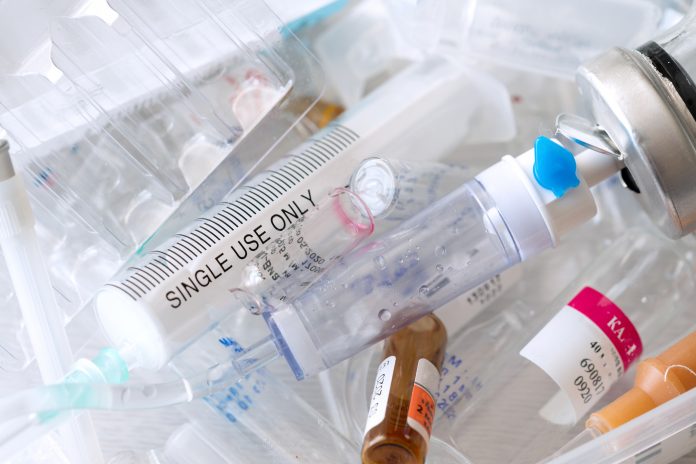The UK government is launching a new strategy to help reduce the reliance on single-use medical devices in the NHS
This plan, called the Design for Life Roadmap, looks to tackle the waste generated by disposable medical items, which contribute to the 156,000 tonnes of clinical waste produced annually in England alone.
Cutting costs and waste
By promoting the reuse, remanufacture and recycling of these devices, the government hopes to save millions of pounds each year while improving frontline care.
At the moment, many items like surgical tools and walking aids, are discarded after a single use, despite how much they cost. An example is harmonic shears, which cost over £500 each, after often thrown away after one use. Some companies are already demonstrating that these devices can be safely remanufactured, which would substantially cut costs and reduce waste.
Successful case studies to inspire others
A case study example includes the Mid Yorkshire Trust, which switched to reusable tourniquets saved £20,000 in procurement costs and reduced plastic waste by 0.75 metric tonnes.
Northampton Hospital NHS Trust also saved £12,000 by moving from disposable to reusable scissors in its Ophthalmology department.
Sustainable solutions for a greener NHS
Not only will this plan cut costs and reduce waste, but it also has the potential to create thousands of new jobs in the UK, supporting the growth of the domestic medical technology sector.
The Circular Economy Taskforce looks at fostering skilled green jobs and promoting smarter resource usage, with projections suggesting that a shift towards a circular economy could inject £75 billion into the economy and create 500,000 jobs by 2030.
By investing in sustainable medical technology, the NHS can also decrease its dependency on foreign imports, which often face supply chain vulnerabilities that can disrupt patient care. The Design for Life Roadmap outlines 30 main aims to encourage collaboration between the government and industry, aiming to increase the development of sustainable products and provide training to NHS staff on their use.











